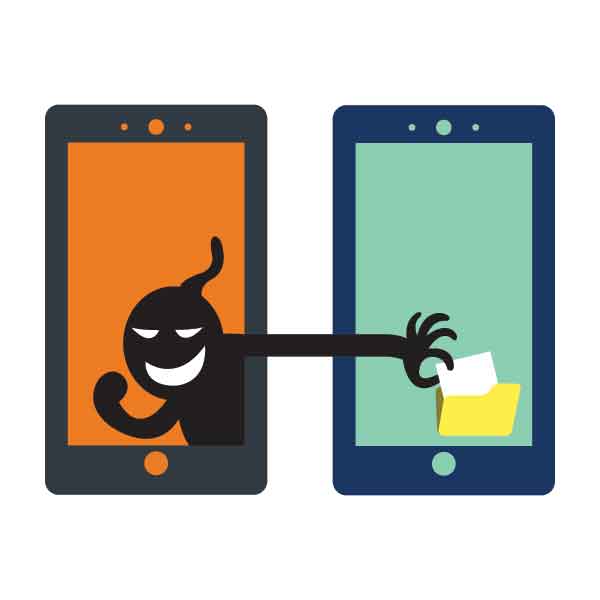
Fixya reveals top problems affecting Xbox One, PlayStation 4 and Wii U consoles
Games consoles, like any complicated piece of hardware, can go wrong in myriad ways, and usually at the most inappropriate moment -- when your wife’s out for the evening and you’ve got a freshly purchased copy of Titanfall, and a group of trigger-happy friends standing by, for example.
Popular product Q&A service Fixya has sifted through over 40,000 troubleshooting requests relating to the Xbox One, PlayStation 4, and Wii U and put together a report detailing the top five commonly encountered problems for each of the next-gen consoles. It doesn’t break down the number of problems per console (thereby neatly sidestepping fanboy accusations of one being shoddier than the other) but does still make for interesting reading.

Google's Chinese web encryption is nothing more than PR and posturing
We are spied upon. Someone, somewhere, knows what you have been doing online. It might be your snooping friend taking a look at your browsing history, or it might be that weird looking guy on the next table in the coffee shop watching your every click. It might be advertisers using cookies, or it could be your own government. This is now just about expected; it is part and parcel of using the internet. In some parts of the world, access to the internet is not only monitored, but also restricted and controlled. But it didn’t used to be like this, and it needn't stay like this.
In some regions the idea of mass spying is a relatively recent concept. The activities of the NSA, GCHQ and other government organizations are something only the most recent generation of internet users is "used" to -- for the rest us, it is at best an unpleasant sea change, and at worst just the tip of the iceberg. As it was revealed that governments were not only spying on citizens' online activities but also getting other companies involved by requiring them to hand over user data, big names such as Microsoft, Google, and Apple were falling over themselves to appear to be going out of their way to reveal everything they could about the demands made of them. It was the PR machine in action, trying to make the best of a very, very bad situation.

Hey, Google! Please be open and honest with your search ads
It may not be a new season, but it's time for a Google makeover nevertheless. This time around it is the search results page that has been given a lick of paint, although you might be forgiven for not quite being able to put your finger on what's changed. You'll almost certainly notice that things look a bit different, but the details may escape you. The changes were put in place yesterday, having been heralded on Google+ by Google search designer Jon Wiley who explains that the subtle changes are to bring the desktop look more in line with that used on mobile devices.
The size of search result titles has been boosted, and the underline that was present has now been removed. Wiley says that "we've […] evened out all the line heights [which] improves readability and creates an overall cleaner look". This all sounds great in principle. After all, as Wiley points out, it helps to make "the multi-device experience more consistent". But it also ushers in a few concerns.

Can the Internet of Things live up to its hype?
The Internet of Things has the potential to offer significant benefits to both businesses and consumers. Realizing those benefits though relies on identifying problems that the IoT can address.
Technology research specialist IDTechEx's event in Berlin at the beginning of April is set to explore the prospects offered by the IoT and look at how it can be used to make a difference in the real world.

Eek! Android WhatsApp database can be stolen and shared by other apps
The Android version of WhatsApp, the cross-platform messaging tool recently snapped up for $19 billion by Facebook, contains a security flaw that means its chat database could be accessed by any app and uploaded to a web server without user knowledge or intervention. It's not clear whether this vulnerability has yet been exploited, but a proof-of-concept attack by Bas Bosschert (consultant, sysadmin and entrepreneur) shows that it is not only possible, but also incredibly simple. To cut to the chase, the answer to the question posed by Bas' brother, "is it possible to upload and read the WhatsApp chats from another Android application?", is "yes, that is possible".
In order for an "attack" to be successful, a user must have granted the app access to the SD card. As Bas points out, "since [a] majority of the people allow everything on their Android device, this is not much of a problem" for an attacker to overcome. Assuming this setting has been enabled, there really is very little work to be done. With a webserver at hand, it is quite easy to create an app that seeks out WhatsApp's database and uploads it ready for perusal.

A digital bill of rights is essential to the future of democracy
If there was ever anyone more qualified to talk about the web than Tim Berners-Lee, I would like to meet them. The man responsible for inventing the World Wide Web (a heavy burden for anyone to carry, I'm sure) joins us today in celebrating the 25th anniversary of the web.
But the big news isn't that Berners-Lee has been able to watch his baby grow up, go through a difficult teenage stage and flourish into adulthood, bringing us up to the quarter century the web has been with us. The real news is the inventor of the web calling for a "digital bill of rights".

PBS wants you to get off the couch and take your kids outside
Perhaps many of us spend more time in front of screens than we should, between TV and computer monitors, even smaller ones like smartphones and tablets. While these things have become a major force in today's society, they simply are not all of what life is about. And now PBSKids, ironically a TV network, is telling you enough is enough.
The Public Broadcasting Service (PBS) has teamed up with the National Recreation and Park Association (NRPA) in an effort to get you and your kids outside, at least for the month of April. This is the "Explore the Outdoors" campaign, and it's not the first year the two have come together for this.

CeBIT: UK Prime Minister backs development of insane-speed 5G networks
Mobile users are just getting around to upgrading their handsets to take advantage of 4G networks, but this simply is not fast enough. UK Prime Minister, David Cameron, spoke at CeBIT announcing that the country will join forces with Germany to develop the successor to 4G -- the uninspiringly-named 5G. The PM announced a deal with Germany which will help to push forward with the development of a mobile broadband network that will offer download speeds up to 1,000 times those currently available on 4G.
To put this kind of speed in perspective, as the Prime Minister explained, an 800MB movie (or any other type of file for that matter) could be download in a single second. One second. For the best part of a gig of data. On a mobile device. Who is going to say no to that? Ultimately, the adoption rate will be determined by the costs involved -- mobile tariffs, suitable handsets, data charges, and coverage -- but before any of this becomes an issue, 5G needs to be, well, invented really.

Getty Images makes its pictures available for free -- but what’s the real price?
You can't argue with free can you? The absence of a price tag makes just about anything seem more attractive, and the latest company to join the freebie party is none other than Getty Images, that bastion of photos whose pictures you cannot fail to have seen in newspapers, magazines and on websites. Previously only available to those willing to cough up the cash, Getty Images' new Embed Images tool can now be used by any to... well... embed images into web pages and blog posts. And there are literally millions to choose from.
Sounds great, right? You must have found yourself struggling to find a royalty free image to use in a blog post, ultimately settling for working with something less than ideal -- after all, you wouldn’t just "borrow" an image from another site, would you? Now you can simply head over to the Getty Images site and, assuming you're not going to use pictures for commercial purposes, start browsing for and using whatever photos take your fancy. Hoorary!

Cover up your bits! Vine bans porn
The internet is awash with porn. If you want to find something a little titillating, have a taste for the weird, or just want some good old fashion hardcore, you don’t have to look too far to satiate that desire. But if you have been looking to Vine to get your kicks -- and seriously, there must be some better places to look! -- you're going to have to turn your attention elsewhere, as a complete porn ban has been put in place.
It does not matter if you want to share porny videos of yourself with a loved one privately, everything that falls into the category of "Pornography and Sexually Explicit Content" is outlawed. Vine's terms of service state in no uncertain terms that "You may not post Content that... Is pornographic or sexually explicit", and the Vine Rules make it abundantly clear what is permitted and what is not.

Where have all the fanboys gone? Is brand loyalty dead and buried?
This is a personal account of the way I have noticed the technology markets changing over the years. It is not gospel, and you are welcome (encouraged, if you like) to disagree… It's not all that long ago that brand loyalty was a given; it was almost the default setting for many people. If you got into computing -- and it was something you "got into" rather than just having as part of your life -- you stuck loyally to whatever brand you chose at the start. We could go back to the 70s and look at the birth of personal computing, but as this is my personal account, we'll have to start in the 80s.
I did just manage to sneak into the 70s -- being born in 1979 puts me in the difficult-to-comprehend position of being 34 years old but having seen five decades -- but an interest in computing didn't emerge until some time in the late 80s. I remember there being several computing camps: BBC, Amstrad, Spectrum, Vic and Commodore to name a few. My decision was made for me at an early age when my dad decided to invest in a Commodore 16 Plus 4 (the Plus 4 referring to the fact that the OS featured four built-in applications including a spreadsheet tool, the absurd simplicity of which was not lost on me even at a young age).

$1.7 trillion a year, the cost of dealing with business email
Email has become a staple of business communication and although it's essentially free it has a hidden cost in terms the time spent dealing with it.
Collaborative email service Contatta has released an infographic which quantifies how time consuming and costly business email has become.

Logitech brings its Harmony brand to the keyboard, wants to control your home theater
Logitech’s Harmony line has been getting a recent refresh, with new remote controls being released. The universal remotes are highly useful for home theater enthusiasts, as they offer easy programming and excellent functionality.
Now the expansion continues, but this time it jumps to the keyboard. You don’t even need to have an HTPC to take advantage of this new keyboard in your living room, thanks to a unique design idea.

Yahoo and BlackBerry worm further into your life with mobile ads
There are few people who like ads. Sure, they can be works of art -- certainly there are some advertisements that are infinitely better than a lot of the dirge pumped out by television networks -- but while advertisements on television can be fairly easily avoided (thank you TiVo -- other PVRs are available!) it is a different matter on a computer or mobile device. "Opting" to watch a mindblowing ad for Apple, Guinness or Honda is one thing, but to have unavoidable -- and usually crappy -- advertisements forced upon you whilst browsing the web or using an application is an entirely different matter.
There are groups of people who are happy to endure these adverts because they fund apps, and make it possible for developers to provide their hard work free of charge -- you may fall into this group and have perhaps been able to configure an automatic ad filter for your eyes. But there are larger legions for whom ads are just plain, damned irritating. In some instances it is possible to pay to avoid them, but this is not always the case. If BlackBerry and Yahoo get their way, advertisements are going to become rather more noticeable.

The most popular stories on BetaNews this past week February 23 -- March 1
Webcam porn! Spying! Cell phones! Bitcoin controversy! Just another normal week in the world of tech news! Bitcoin exchange Mt Gox disappeared offline amid concern about missing millions and then filed for bankruptcy. After panic spread through Mac users following the discovery of a serious SSL bug in Mavericks, Apple released an update that plugged the hole -- but it was also discovered that iOS 7 has a keylogging vulnerability. Microsoft released Service Pack 1 for Office 2013, but anyone using Office 365 will need to force the installation of newer updates in order to reap the benefits.
Security updates are all well and good for operating systems and applications, but it will do little to protect you against the wandering eyes of government agencies. As if everything we have already learned about the activities of the NSA et al, this week's revelations about what the UK's GCHQ has been getting up to is sure to raise ire. Not content with logging emails and web searches, the UK intelligence agency apparently spent a number of years tapping into the webcam chats of millions of Yahoo users. There may be little good news in this revelation, but it was at least slightly amusing to find that the surveillers were rather taken aback by the amount of pornographic content they encountered. It makes ya proud!
